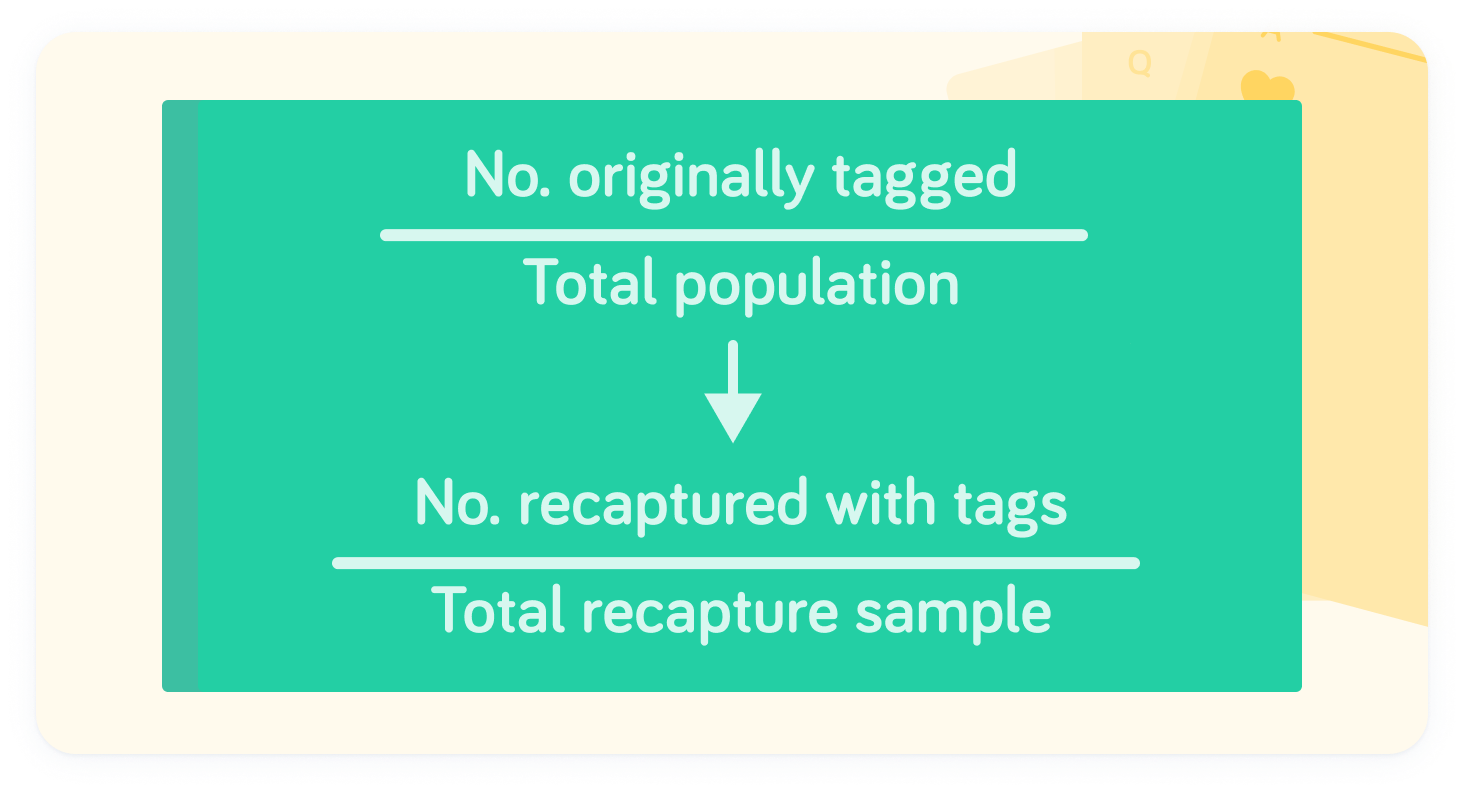YOU ARE LEARNING:
Capture-recapture Method of Sampling

Capture-recapture Method of Sampling
We can't directly count the number of individuals in a population, as there are too many. Instead, we can use the capture-recapture method to estimate the total population.
Since there are so many animals in the world, we can't keep track of their numbers by counting. This would be too difficult, and would likely lead to lots of animals being counted multiple times.
The capture-recapture method enables us to estimate the number of animals in a population.
Let's imagine you are at the local pond, and want to know how many fish there are. Instead of trying to count them all individually, you could capture 60 fish, tag and release them.
Tomorrow, you can come back and catch another small sample, and see how many of them have a tag. Using this amount, you could then use proportional reasoning to estimate the total population.
In which of these situations could the capture-recapture method be useful?

To calculate the population estimate, use this formula
This formula means that the number of tagged fish caught the second time as a proportion of the total amount of fish caught the second time, is the same as the proportion of fish originally tagged out of the total population of fish in the pond.

So let's imagine, you catch and tag 60 fish on the first day. On the next day, you catch 20 fish, and find that 12 of them have a tag. What is the total population of fish in the pond?
Use the formula
total populationno. originally tagged=total recapture sampleno. recaptured with tags
Subsitute the values you know into the formula
x60=2012
Multiply both sides by x
x60=2012 → 60=2012x
If 60=2012x, what is x?

The total population is 100
By rearranging the equation, we find x=121200=100
Remember, this is only an estimate
Since we have not observed directly how many fish are in the pond, this is not necessarily the actual number of fish in the pond.
I want to find out the number of deer in a park. I tag 70 deer on Monday and release them again. On Tuesday, I come back and catch 30 deer, and find that 14 of them have a tag on them.
Remember the formula
total populationno. originally tagged=total recapture sampleno. recaptured with tags
Subsitute the known values into the equation, using x for any unknowns.

What is the total population, x, if x70=3014?

The total population is 150 deer
By rearranging the equation, we find that x=1430×70=150
